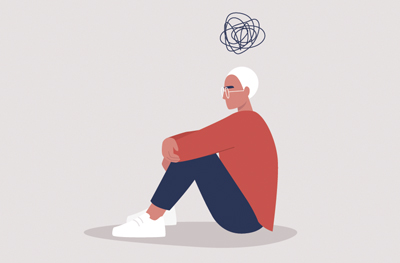First, we need to understand what stress is
Stress is much more than just an uncomfortable feeling of physical tension. The ‘stress response’ has its origins in our primitive past – when our ancestors frequently faced dangerous predators or enemies. It provided quick bursts of energy, strength, and alertness, needed to stand and fight – or run away. Still ‘wired’ into our brains today, it involves a complex array of chemical reactions and changes in body function. Unfortunately, because the mundane aggravations of daily life can also activate the stress response, we experience the same surge of body chemicals and changes in body function, designed for much less frequent major threats. Learning to manage stress is an important part of a self-care routine.
Stressed too frequently, or for prolonged periods, our bodies take a terrible pounding. This biochemical onslaught can compromise our immune system, making us vulnerable to infection and disease – including cancer.
Hormones unleashed by stress can damage the digestive tract and lungs; they can also weaken the heart, leading to stroke and heart disease. Prolonged stress can eat away at every body system like an internal predator. Though it can protect us, it can also turn on us.
Recent research indicates that some people are more prone to stress than others. Losing a parent, being traumatised, or in some other way being exposed to a high level of stress in childhood, may permanently rewire the brain’s circuitry, making it much more difficult to deal with everyday stress in later life. But whatever our individual tolerance for stress, it can – and needs to be managed.
Here are some strategies for learning to manage stress
- Structured problem solving: tackling problems that give rise to stress in a thoughtful, step-by-step, constructive, and deliberate way. Writing things down is best. Be sure to seek the advice and expertise of others in this if needed.
- Daily exercise – especially before your evening meal. This can help burn off stress hormones in the bloodstream, and stimulate neurotransmitters in the brain responsible for modulating mood and emotion.
- Limiting alcohol intake to a low risk level (alcohol interferes with sleep and depresses mood).
- Cutting out caffeine (caffeine acts as an unwanted stimulant and interferes with sleep; it can make stress worse).
- Finding a good relaxation technique (one that works and that is easy to practice), and using it several times a day.
- Writing down what is most important to you – getting back in touch with your deepest values
- Slowing life down, and deliberately engaging in calming activities and recreation. Going about ordinary tasks more slowly and deliberately – slowing physical motion can be very effective.
- Learning to control your thoughts. Disciplining yourself to think rationally about challenges and problems, and avoiding: – catastrophising (‘this is the worst thing that could happen to me’) – globalising (‘everything has gone wrong; nothing will help’). Both responses generate a lot of stress. If replaced by structured problem solving, an experience and/or problem can be cut down to size. Be constructive, and be determined to push through and past negativity.
- Developing the discipline of getting to bed at night and waking in the mornings at much the same time, and making sure you get plenty of sleep. Sleep is vital for stress management and an essential pillar of physical and psychological wellbeing.






